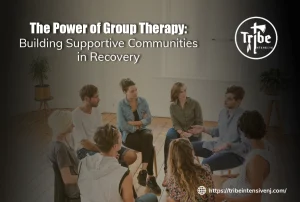In recent years, intensive outpatient programs (IOPs) have emerged as a crucial element in addiction recovery treatment. These programs offer a structured approach to overcoming addiction while allowing individuals to maintain their daily routines. Unlike inpatient rehabilitation, intensive outpatient programs provide flexibility without compromising the quality of care. Let’s explore the key benefits of intensive outpatient programs and why they are a preferred choice for many individuals seeking recovery.
1. Flexible Treatment Schedule
One of the most significant benefits of intensive outpatient programs is their flexibility. Unlike residential treatment, which requires individuals to live on-site, IOPs allow participants to continue living at home. This is particularly beneficial for those who have work commitments, school responsibilities, or family obligations. With sessions scheduled during evenings or weekends, individuals can prioritize their recovery without disrupting their daily routines.
2. Comprehensive Support System
IOPs provide access to a comprehensive support network, including counselors, therapists, and peers who understand the challenges of addiction. Group therapy sessions, a common component of IOPs, foster a sense of community and connection. Sharing experiences and learning from others’ journeys can significantly boost an individual’s motivation to stay committed to recovery.
3. Personalized Treatment Plans
Every individual’s journey with addiction is unique, and IOPs reflect this by offering personalized treatment plans. These programs assess the specific needs of each participant and tailor their approach accordingly. Whether the focus is on managing withdrawal symptoms, addressing co-occurring mental health disorders, or rebuilding relationships, intensive outpatient programs ensure that treatment is relevant and effective.
4. Cost-Effectiveness
Compared to inpatient rehabilitation, intensive outpatient programs are far more affordable. Residential treatments often include costs for accommodations, meals, and round-the-clock care, making them a financial burden for many. IOPs eliminate these additional expenses while still delivering high-quality therapeutic services, making recovery accessible to a broader range of individuals.
5. Continuity of Daily Life
One of the key advantages of IOPs is the ability to continue daily life while receiving treatment. Participants can maintain their employment, attend school, or care for their families. This continuity reduces the stigma often associated with stepping away from responsibilities for addiction treatment and encourages individuals to integrate recovery into their everyday lives.
6. Focus on Relapse Prevention
Relapse prevention is a cornerstone of intensive outpatient programs. Participants learn practical skills and strategies to identify triggers, cope with cravings, and manage stress effectively. These coping mechanisms help individuals build resilience and reduce the risk of relapse, ensuring long-term recovery success. Relapse doesn’t mean you aren’t successful but you might need to start again at an alcohol or drug detox program in New Jersey.
7. Access to Therapy and Counseling
IOPs provide a range of therapeutic options, including individual counseling, group therapy, and family therapy. Cognitive Behavioral Therapy (CBT) and Dialectical Behavioral Therapy (DBT) are commonly used to address the underlying causes of addiction and develop healthier thought patterns. Family therapy helps repair strained relationships and create a supportive home environment conducive to recovery.
8. Treatment for Co-Occurring Disorders
Many individuals struggling with addiction also face co-occurring mental health disorders such as anxiety, depression, or PTSD. Mental Health Intensive outpatient programs are equipped to address these dual diagnoses, providing integrated treatment for both addiction and mental health. This holistic approach improves overall well-being and reduces the likelihood of relapse.
9. Skill Development for Long-Term Recovery
IOPs focus on equipping participants with the skills needed for sustained recovery. This includes stress management, effective communication, and problem-solving techniques. By learning how to navigate real-world challenges without turning to substances, individuals become more confident in their ability to maintain sobriety.
10. Gradual Transition to Independence
For those transitioning from inpatient care, IOPs serve as a bridge to independent living. They provide a structured environment where participants can practice their newly acquired skills and coping mechanisms while gradually regaining autonomy. This step-down approach reduces the likelihood of feeling overwhelmed and increases the chances of successful reintegration into society.
Who Can Benefit from Intensive Outpatient Programs?
Intensive outpatient programs are suitable for individuals who:
- Require structured support but do not need 24/7 care.
- Are motivated to recover but have personal or professional commitments.
- Are stepping down from inpatient care or need ongoing support after completing residential treatment.
- Have a stable living environment conducive to recovery.
IOPs are particularly effective for individuals with mild to moderate addiction who are ready to take an active role in their treatment journey.
The Role of Family and Community in IOPs
Family involvement is often a crucial component of intensive outpatient programs. By including family members in therapy sessions, IOPs help rebuild trust, improve communication, and strengthen the support system at home. Community-based support groups, such as Alcoholics Anonymous (AA) or Narcotics Anonymous (NA), complement the services provided by IOPs, offering ongoing encouragement and accountability.
Challenges and How IOPs Address Them
While IOP Programs offer numerous benefits, they are not without challenges. Participants must be motivated and disciplined to attend sessions regularly and apply the strategies they learn. Additionally, individuals in unstable living situations may find it difficult to succeed in an outpatient setting. To address these challenges, IOPs often provide case management services, helping participants access housing, transportation, or childcare resources.
Conclusion
Intensive outpatient programs are a versatile and effective option for addiction recovery. By combining flexibility with comprehensive care, IOPs empower individuals to overcome addiction while maintaining their daily lives. From personalized treatment plans to relapse prevention strategies, these programs equip participants with the tools they need for long-term success.
Whether as a standalone treatment option or part of a broader recovery plan, intensive outpatient programs offer a balanced approach to healing. If you or a loved one is seeking help, consider exploring an IOP to begin the journey toward a healthier, addiction-free life.



